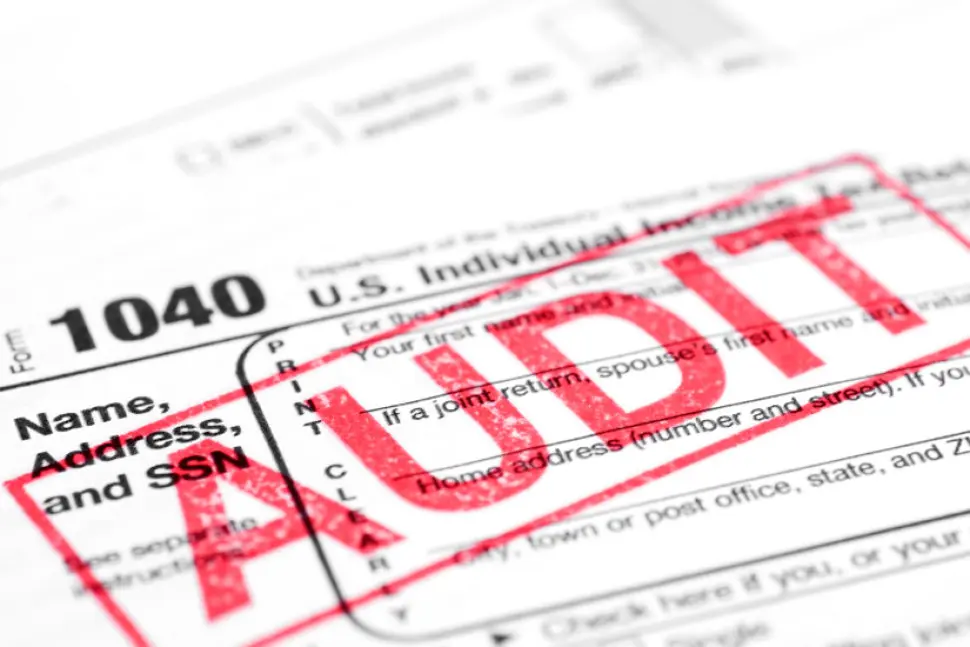The IRS audits only a small percentage of tax returns, but if your business is one of the unlucky few, understanding the appropriate steps to take will help determine whether the outcome is favorable.
Things That May Get Your Tax Return Audited
Before we jump into how to best approach an audit, here are a few things that make your return more likely to be audited:
- DIF scoring — Returns filed at the IRS are assigned a computerized score, a discriminant index function, or DIF score. The higher the score, the more likely the return will be selected for examination. Are your deductions greater than your reported income? This is just one of the things that can increase your DIF score.
- Examination referrals — Audits of a related party can trigger an audit. An agent may discover payments that were reported by one company but not by yours. Not seeing that income on your return will trigger the agent to request an audit of your company.
- Document matching — The IRS matches income reported on 1099 or W-2 forms to the payee’s individual tax return to ensure income is reported.
IRS Dispute Strategies For Small Business
So then, what are some strategies for a small business to favorably dispute an IRS audit?
- Try to maintain control of the audit. If this your first time dealing with an audit this may be difficult, but it is essential to a favorable outcome. The auditor will likely ask probing questions about your lifestyle and your business. You must do everything you can to make sure the audit remains in territory that you feel comfortable defending. Like any business, yours probably has expenses that are harder to substantiate or positions that are more tenuous. Often if you can show that you took painstaking care in certain areas, the IRS will not examine everything. Therefore it is to your advantage to keep the audit focused on the parts of your business that you can most easily substantiate.
- The second strategy aids in accomplishing the first: talk to the IRS as little as you possibly can. The more you say to the IRS, the more ammunition they have to use against you. If you let slip that you loosely accounted for cash transfers, you can bet that is where they will look next. This is why it is often beneficial to hire a professional to represent you in an audit. The professional can more easily avoid letting details about the business come out in negotiation. If you do hire a professional, let them do all of the talking. The worst thing you can do is hire a professional and then communicate with the IRS anyway.
- Claim missed deductions. An audit is a great time to submit documentation for expenses not previously claimed on the tax return. If you discover you’ve overlooked some deductions, you may be able to claim them. For instance, many taxpayers overlook common deductions — home office expenses and business mileage. On a personal tax return, taxpayers often don’t deduct charitable contributions or mileage related to charity and medical expenses. This may mean paying more than required. Review your return under audit. Have an accountant look at it with you. Your business can deduct ordinary and necessary expenses spent to carry out your trade or activity. Use this time to submit documentation for overlooked deductions to reduce your liability or to possibly generate an overpayment of taxes that can offset any deficiencies found by the IRS.
- Dispute the hobby loss theory. One red flag that may result in an audit is if your business has lost money a few years in a row. If this is the case, the IRS may claim that your business is a hobby and you are not in it to actually make a profit. According to Internal Revenue Code Section 183, deductions are limited when an activity is not engaged in for profit. This is known as the hobby loss rule. If business losses have been disallowed because of the hobby loss rule, it is essential to prove your business profitability strategy. For example, did the business implement advertising and marketing campaigns? Also, can you show prior success by providing evidence that the business had profitable years in the past?
- Be creative in substantiating deductions. All is not lost if you don’t have all the documents to justify your expenses. The IRS allows for third-party documentation, oral testimony, and other forms of corroborating expenses. For example, to support business mileage reported on your tax return, consider using Google maps, clients’ records and past invoices to estimate mileage traveled during the taxable year in question. Take time to retrieve prior bank records or credit card statements. Make contact with vendors requesting proof of payment.
Seek A Tax Resolution Professional Today
If you believe you have a substantial amount to lose in the audit, one of the best things you can do is hire a tax resolution professional to help you. In this way, you completely remove yourself, your emotions, and your fears from the equation. Contact Stambaugh today to get started.

